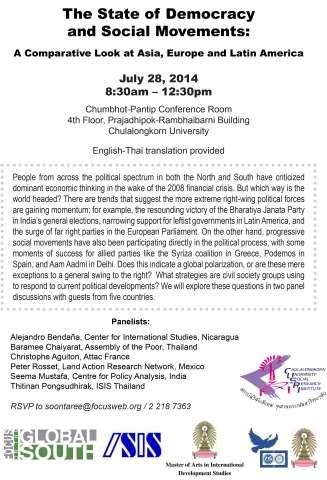With Indian and Pakistani military forces placed as they presently are, it is not surprising that the threat of nuclear war is being talked about so casually and with such a normality that is totally amiss. In fact, the manner in which Pakistan is showing off its nuclear arsenal is so bizarre that certainly sane Pakistanis could not have given adequate thought to a matter so grim.
Several think tanks across the world have conducted elaborate calculations of the numbers that would be immediately vaporized if a nuclear bomb was to be dropped on a city and those unfortunate enough to survive and live through the unimaginable days after. The miseries wreaked on any populace would be of such unimaginable proportions and so widespread in terms of time and space that one wonders what could possibly be the motivations that could animate anybody to push the nuclear button.
Even in the face of blatant Pakistani pronouncements on its low nuclear threshold, in precincts no less hallowed than the UN, India has reiterated that it shall not resort to the first use of nuclear weapons. The country’s draft nuclear doctrine puts this across in no uncertain terms and umpteen official statements thereafter, including those made in recent tense times, continue to uphold this resolve. Pakistan, therefore, could be the only introducer of nuclear arms into an India-Pak conflict.
There could possibly be two prominent scenarios in which Pakistani leadership – political, military or whoever else happens to have control over the nuclear trigger- could resort to nuclear use.
a) In desperation, if the conventional military might of India appears to totally overwhelm Pakistan as to put its survival as a national entity in danger.
b) In despair, if the Pakistani leadership finds itself in such a hopeless situation, domestically and internationally, that it finds greater sense in self-annihilation than life after war. Indications of this thinking were provided in an interview of a retired Pakistani general who claimed to speak for several others when he said that the situation in the country was so despondent as to merit a fresh start after a nuclear war!!
If desperation or despair could indeed be the two triggers for a Pakistani nuclear strike, then it would be in India’s interests to reason out both situations. In the case of the first scenario, India could help avert nuclear war by clearly articulating and expressing the military objectives of a conventional strike into Pakistan. It will have to be stated, as has been done in the past, that removing Pakistan from the face of the political map of the world is not an Indian political or military objective. New Delhi seeks to cohabit with its western neighbour in peace, a goal that is realistically possible only if Islamabad puts an end to the perpetration of terrorism. Therefore, with Pakistan’s survival not at stake, there should be no reason for a resort to nuclear weapons. Of course, this logic can work only if the survival of the military regime is not equated with that of the nation-state. But, this for the people of Pakistan to decide and act.
In case of the second situation where a nuclear exchange is envisaged because Pakistan sees little hope of emerging out of the abysmal situation it has fallen into, it needs to be pointed out to Pakistan by all those who have a voice, that despite the country being in such dire straits – economically, politically, socially – things could still be salvaged if only the country could reorient its priorities differently. For too long, in fact ever since its independence, Pakistan’s attention and energies have largely focused on negating or eroding India’s achievements – of democracy, secularism, economic development etc.– by fomenting trouble and fanning insurgencies. A proxy war has been sustained through terrorism based on the radical ideology of jehad, physically supported through a network of training camps, and financially aided by narco-trafficking and gun running.
While India has been badly bled by such policies, it has not been possible for Pakistan either to escape repercussions of playing with fire. Terrorist organisations have acquired a mind and agenda of their own. The easy availability of weapons, an illicit drug trade and the impact of madrassa education has let loose its own dynamics over time. It is estimated that nearly two million small arms are in circulation in Pakistan while about three million rest in clandestine stockpiles available to a militant outfit ready to take up the cause of Kashmir. Money is available from the narcotics economy that is believed to have an annual turnover of $2.5 billion.
Meanwhile, distorted development priorities have led to a decline in social sector spending on public education so that madrassas or religious schools remain the only option for many. With an unemployment rate of nearly 16 per cent, and madrassa-trained youth anyway unable to compete for modern jobs in the government or the limited private and services sectors, joining jehad presents itself as a means of gainful employment for the majority. An unusually large defence budget has naturally eaten into developmental projects. Consequently, a deepening economic crisis, increasing sectarian violence, diffusion of small arms and light weapons into civil society, a phenomenal spread of narcotics use, and the evidence of Talibanisation in every Pakistani establishment are amongst the repercussions on the country itself.
Isn’t this then too high a price to pay for the sake of inflicting terrorism on India? And, would it not be downright foolish to annihilate a sick society and polity with nothing less than nuclear weapons instead of getting the country to utilize its resources – material and human — to build a nation that every citizen would be proud of? Future generations of Pakistan may well thank President Musharaff if he could use this moment of truth to redefine his country’s identity and re-chart its course.
It might still not be too late to pull the two countries back from the brink of a senseless conflict that could prove to be a disaster beyond human imagination. Future generations would never forgive the present leadership a foolish move. The use of nuclear weapons can never be justifiable, not in desperation, and definitely not in despair.
*Dr. Manpreet Sethi has a Ph.D in international relations and has worked extensively on issues of nuclear proliferation and disarmament.








